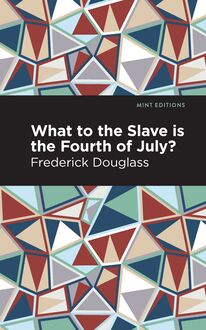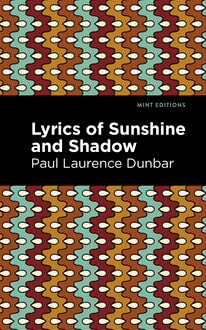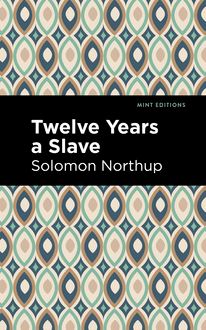-
 Univers
Univers
-
 Ebooks
Ebooks
-
 Livres audio
Livres audio
-
 Presse
Presse
-
 Podcasts
Podcasts
-
 BD
BD
-
 Documents
Documents
-
- Cours
- Révisions
- Ressources pédagogiques
- Sciences de l’éducation
- Manuels scolaires
- Langues
- Travaux de classe
- Annales de BEP
- Etudes supérieures
- Maternelle et primaire
- Fiches de lecture
- Orientation scolaire
- Méthodologie
- Corrigés de devoir
- Annales d’examens et concours
- Annales du bac
- Annales du brevet
- Rapports de stage
La lecture à portée de main
Vous pourrez modifier la taille du texte de cet ouvrage
Découvre YouScribe en t'inscrivant gratuitement
Je m'inscrisDécouvre YouScribe en t'inscrivant gratuitement
Je m'inscrisEn savoir plus
Vous pourrez modifier la taille du texte de cet ouvrage
En savoir plus

Description
The Conjure Woman (1899) is a collection of stories by African American author, lawyer, and political activist Charles Chesnutt. “The Goophered Grapevine,” the collection’s opening story, was originally published in The Atlantic in 1887, making Chesnutt the first African American to have a story published in the magazine. The Conjure Woman is now considered a masterpiece of African American fiction for its use of folklore and exploration of racist stereotypes of Black Americans, especially those living in the South.
In “The Goophered Grapevine,” an old ex-slave named Julius McAdoo—a coachman hired by a white Northerner named John—warns his employer about the land he has decided to purchase. He tells him the story of the vineyard’s previous owner, who hired a woman named Aunt Peggy to put a curse on his famous scuppernong grapes in order to stop his slaves from eating them. Each story in The Conjure Woman follows a similar formula, beginning with a narrative situation involving John and his wife, Annie, before leading to a story from Uncle Julius. “Po’ Sandy,” one of Chesnutt’s most acclaimed tales—and a loose adaptation of Ovid’s Metamorphoses—opens with John deciding to build a new kitchen for his wife. Uncle Julius drives him to the saw mill, where, while watching the saw cut through a log, he is reminded of the story of Sandy, a local man who was turned into a tree by a conjurer in order to escape slavery. The Conjure Woman is a powerful collection of folk takes and stories exploring themes of race, identity, and class in the nineteenth century South.
With a beautifully designed cover and professionally typeset manuscript, this edition of Charles Chesnutt’s The Conjure Woman is a classic of African American literature reimagined for modern readers.
Sujets
Informations
| Publié par | Mint Editions |
| Date de parution | 08 décembre 2020 |
| Nombre de lectures | 0 |
| EAN13 | 9781513274171 |
| Langue | English |
| Poids de l'ouvrage | 2 Mo |
Informations légales : prix de location à la page 0,0400€. Cette information est donnée uniquement à titre indicatif conformément à la législation en vigueur.
Extrait
The Conjure Woman
Charles W. Chesnutt
The Conjure Woman was first published in 1899.
This edition published by Mint Editions 2021.
ISBN 9781513269177 | E-ISBN 9781513274171
Published by Mint Editions®
minteditionbooks.com
Publishing Director: Jennifer Newens
Design & Production: Rachel Lopez Metzger
Typesetting: Westchester Publishing Services
C ONTENTS T HE G OOPHERED G RAPEVINE P O ’ S ANDY M ARS J EEMS ’ S N IGHTMARE T HE C ONJURER ’ S R EVENGE S IS ’ B ECKY ’ S P ICKANINNY T HE G RAY W OLF ’ S H A ’ NT H OT -F OOT H ANNIBAL A PPENDIX U NCOLLECTED U NCLE J ULIUS S TORIES D AVE ’ S N ECKLISS (1889) A D EEP S LEEPER (1893) L ONESOME B EN (1900) E SSAY S UPERSTITIONS AND F OLK -L ORE OF THE S OUTH (1901)
T HE G OOPHERED G RAPEVINE
S ome years ago my wife was in poor health, and our family doctor, in whose skill and honesty I had implicit confidence, advised a change of climate. I shared, from an unprofessional standpoint, his opinion that the raw winds, the chill rains, and the violent changes of temperature that characterized the winters in the region of the Great Lakes tended to aggravate my wife’s difficulty, and would undoubtedly shorten her life if she remained exposed to them. The doctor’s advice was that we seek, not a temporary place of sojourn, but a permanent residence, in a warmer and more equable climate. I was engaged at the time in grape-culture in northern Ohio, and, as I liked the business and had given it much study, I decided to look for some other locality suitable for carrying it on. I thought of sunny France, of sleepy Spain, of Southern California, but there were objections to them all. It occurred to me that I might find what I wanted in some one of our own Southern States. It was a sufficient time after the war for conditions in the South to have become somewhat settled; and I was enough of a pioneer to start a new industry, if I could not find a place where grape-culture had been tried. I wrote to a cousin who had gone into the turpentine business in central North Carolina. He assured me, in response to my inquiries, that no better place could be found in the South than the State and neighborhood where he lived; the climate was perfect for health, and, in conjunction with the soil, ideal for grape-culture; labor was cheap, and land could be bought for a mere song. He gave us a cordial invitation to come and visit him while we looked into the matter. We accepted the invitation, and after several days of leisurely travel, the last hundred miles of which were up a river on a sidewheel steamer, we reached our destination, a quaint old town, which I shall call Patesville, because, for one reason, that is not its name. There was a red brick market-house in the public square, with a tall tower, which held a four-faced clock that struck the hours, and from which there pealed out a curfew at nine o’clock. There were two or three hotels, a court-house, a jail, stores, offices, and all the appurtenances of a county seat and a commercial emporium; for while Patesville numbered only four or five thousand inhabitants, of all shades of complexion, it was one of the principal towns in North Carolina, and had a considerable trade in cotton and naval stores. This business activity was not immediately apparent to my unaccustomed eyes. Indeed, when I first saw the town, there brooded over it a calm that seemed almost sabbatic in its restfulness, though I learned later on that underneath its somnolent exterior the deeper currents of life—love and hatred, joy and despair, ambition and avarice, faith and friendship—flowed not less steadily than in livelier latitudes.
We found the weather delightful at that season, the end of summer, and were hospitably entertained. Our host was a man of means and evidently regarded our visit as a pleasure, and we were therefore correspondingly at our ease, and in a position to act with the coolness of judgment desirable in making so radical a change in our lives. My cousin placed a horse and buggy at our disposal, and himself acted as our guide until I became somewhat familiar with the country.
I found that grape-culture, while it had never been carried on to any great extent, was not entirely unknown in the neighborhood. Several planters thereabouts had attempted it on a commercial scale, in former years, with greater or less success; but like most Southern industries, it had felt the blight of war and had fallen into desuetude.
I went several times to look at a place that I thought might suit me. It was a plantation of considerable extent, that had formerly belonged to a wealthy man by the name of McAdoo. The estate had been for years involved in litigation between disputing heirs, during which period shiftless cultivation had well-nigh exhausted the soil. There had been a vineyard of some extent on the place, but it had not been attended to since the war, and had lapsed into utter neglect. The vines—here partly supported by decayed and broken-down trellises, there twining themselves among the branches of the slender saplings which had sprung up among them—grew in wild and unpruned luxuriance, and the few scattered grapes they bore were the undisputed prey of the first comer. The site was admirably adapted to grape-raising; the soil, with a little attention, could not have been better; and with the native grape, the luscious scuppernong, as my main reliance in the beginning, I felt sure that I could introduce and cultivate successfully a number of other varieties.
One day I went over with my wife to show her the place. We drove out of the town over a long wooden bridge that spanned a spreading mill-pond, passed the long whitewashed fence surrounding the county fair-ground, and struck into a road so sandy that the horse’s feet sank to the fetlocks. Our route lay partly up hill and partly down, for we were in the sand-hill county; we drove past cultivated farms, and then by abandoned fields grown up in scrub-oak and short-leaved pine, and once or twice through the solemn aisles of the virgin forest, where the tall pines, well-nigh meeting over the narrow road, shut out the sun, and wrapped us in cloistral solitude. Once, at a cross-roads, I was in doubt as to the turn to take, and we sat there waiting ten minutes—we had already caught some of the native infection of restfulness—for some human being to come along, who could direct us on our way. At length a little negro girl appeared, walking straight as an arrow, with a piggin full of water on her head. After a little patient investigation, necessary to overcome the child’s shyness, we learned what we wished to know, and at the end of about five miles from the town reached our destination.
We drove between a pair of decayed gateposts—the gate itself had long since disappeared—and up a straight sandy lane, between two lines of rotting rail fence, partly concealed by jimson-weeds and briers, to the open space where a dwelling-house had once stood, evidently a spacious mansion, if we might judge from the ruined chimneys that were still standing, and the brick pillars on which the sills rested. The house itself, we had been informed, had fallen a victim to the fortunes of war.
We alighted from the buggy, walked about the yard for a while, and then wandered off into the adjoining vineyard. Upon Annie’s complaining of weariness I led the way back to the yard, where a pine log, lying under a spreading elm, afforded a shady though somewhat hard seat. One end of the log was already occupied by a venerable-looking colored man. He held on his knees a hat full of grapes, over which he was smacking his lips with great gusto, and a pile of grapeskins near him indicated that the performance was no new thing. We approached him at an angle from the rear, and were close to him before he perceived us. He respectfully rose as we drew near, and was moving away, when I begged him to keep his seat.
“Don’t let us disturb you,” I said. “There is plenty of room for us all.”
He resumed his seat with somewhat of embarrassment. While he had been standing, I had observed that he was a tall man, and, though slightly bowed by the weight of years, apparently quite vigorous. He was not entirely black, and this fact, together with the quality of his hair, which was about six inches long and very bushy, except on the top of his head, where he was quite bald, suggested a slight strain of other than negro blood. There was a shrewdness in his eyes, too, which was not altogether African, and which, as we afterwards learned from experience, was indicative of a corresponding shrewdness in his character. He went on eating the grapes, but did not seem to enjoy himself quite so well as he had apparently done before he became aware of our presence.
“Do you live around here?” I asked, anxious to put him at his ease.
“Yas, suh. I lives des ober yander, behine de nex’ san’-hill, on de Lumberton plank-road.”
“Do you know anything about the time when this vineyard was cultivated?”
“Lawd bless you, suh, I knows all about it. Dey ain’ na’er a man in dis settlement w’at won’ tell you ole Julius McAdoo ’uz bawn en raise’ on dis yer same plantation. Is you de Norv’n gemman w’at’s gwine ter buy de ole vimya’d?”
“I am looking at it,” I replied; “but I don’t know that I shall care to buy unless I can be reasonably sure of making something out of it.”
“Well, suh, you is a stranger ter me, en I is a stranger ter you, en we is bofe strangers ter one anudder, but ’f I ’uz in yo’ place, I wouldn’ buy dis vimya’d.”
“Why not?” I asked.
“Well, I dunno whe’r you b’lieves in cunj’in’ er not,—some er de w’ite folks don’t, er says dey don’t,—but de truf er de matter is dat dis yer ole vimya’d is goophered.”
“Is what?” I asked, not grasping the meaning of this unfamiliar word.
“Is goophered,—cunju’d, bewitch’.”
He imparted this information with such solemn earnestness, and with such an air of confidential mystery, that I felt somewhat interested,
-
 Univers
Univers
-
 Ebooks
Ebooks
-
 Livres audio
Livres audio
-
 Presse
Presse
-
 Podcasts
Podcasts
-
 BD
BD
-
 Documents
Documents
-
Jeunesse
-
Littérature
-
Ressources professionnelles
-
Santé et bien-être
-
Savoirs
-
Education
-
Loisirs et hobbies
-
Art, musique et cinéma
-
Actualité et débat de société
-
Jeunesse
-
Littérature
-
Ressources professionnelles
-
Santé et bien-être
-
Savoirs
-
Education
-
Loisirs et hobbies
-
Art, musique et cinéma
-
Actualité et débat de société
-
Actualités
-
Lifestyle
-
Presse jeunesse
-
Presse professionnelle
-
Pratique
-
Presse sportive
-
Presse internationale
-
Culture & Médias
-
Action et Aventures
-
Science-fiction et Fantasy
-
Société
-
Jeunesse
-
Littérature
-
Ressources professionnelles
-
Santé et bien-être
-
Savoirs
-
Education
-
Loisirs et hobbies
-
Art, musique et cinéma
-
Actualité et débat de société
- Cours
- Révisions
- Ressources pédagogiques
- Sciences de l’éducation
- Manuels scolaires
- Langues
- Travaux de classe
- Annales de BEP
- Etudes supérieures
- Maternelle et primaire
- Fiches de lecture
- Orientation scolaire
- Méthodologie
- Corrigés de devoir
- Annales d’examens et concours
- Annales du bac
- Annales du brevet
- Rapports de stage




















